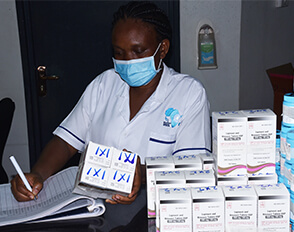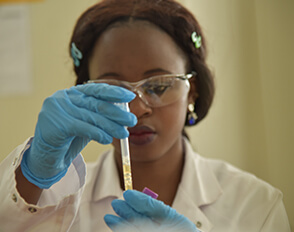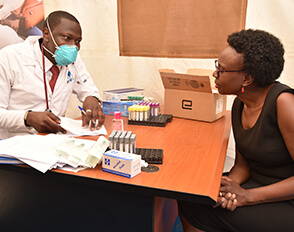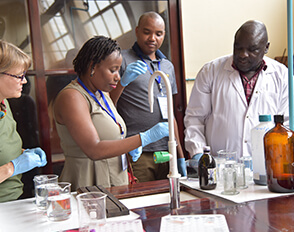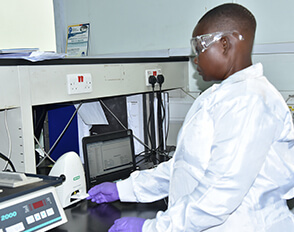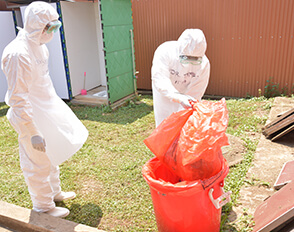
Healthcare-associated infections are the most common complications affecting patients in hospitals. They cause unnecessary pain and suffering resulting in longer hospital stays and significant health care costs. This strains the health system leading to increased morbidity and mortality (CDC, 2021).
Rigorous Infection Prevention and Control programs are imperative to protect healthcare workers against infections, support hospital and community-based outbreak response efforts, and continuity of essential services. (WHO, 2018)
Despite the fact that several private sector-run hospitals in Uganda are involved in the management of COVID-19, efforts to strengthen IPC programming largely focused on public health facilities with minimal effort rendered to the private players including the Faith-based health facilities.
With funding from CDC, IDI sought to strengthen structures for the technical implementation of IPC programming for the Faith-Based health facilities through a Champion-led model. Using this approach, one health worker (a champion) was identified from each facility to attend a 3-day Training of Trainers and equipped to lead a monthly IPC training program for health care workers within their resident facilities.
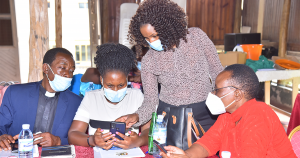 240 IPC champions from 213 faith-based health facilities were identified and empowered to train others. These conducted monthly IPC assessments to determine areas for prioritization during the mentorships.
240 IPC champions from 213 faith-based health facilities were identified and empowered to train others. These conducted monthly IPC assessments to determine areas for prioritization during the mentorships.
By June 2022, 1,050 Health care workers had been mentored. The project also provided IPC Information, Education and Communication(IEC) materials to over 130 facilities. The facilities demonstrated improved performance in IPC capacity from 62.2% at baseline to 78.4% over the 7 months of intensive support.
Through this support, Faith Based health facilities have been able to build IPC structures with each facility having an IPC champion, a committee, and strong foundations for sustaining the IPC program which is a key entry point to quality health services.

